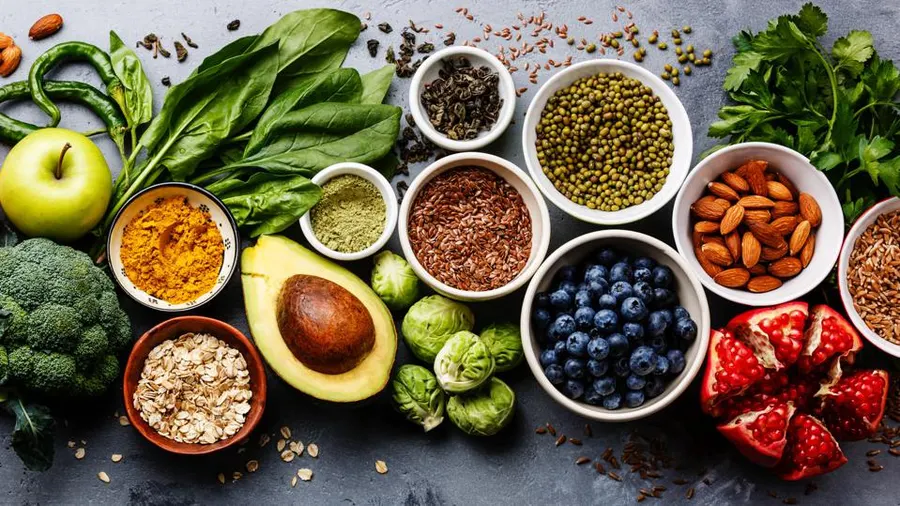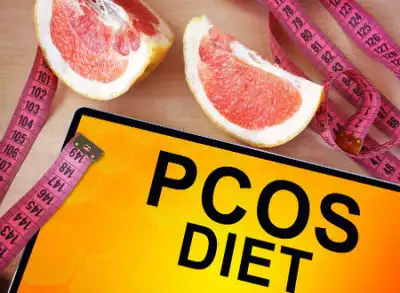The significance of a pregnancy diet plan!
A good diet is essential to maintaining good health at any time, but it's much more crucial if you're expecting or considering pregnancy. Healthy pregnancy foods will support the growth and development of your unborn child.
While you don't need to follow a specific diet, consuming various meals daily ensures you and the baby get the proper nutrients.
Consuming whole meals is the best way to ensure you receive all the vitamins and minerals you need, but when you're pregnant, you must also take a folic acid supplement. Get help from a dietitian for a pregnancy diet plan!
Strive to have a nutritious breakfast daily to avoid nibbling on unhealthy foods that are more sugar and fat.
It's sometimes necessary to alter the portions of specific items rather than eliminate them to maintain a diversified diet while eating healthfully. This demonstrates how much of your diet should come from each food category to maintain a healthy and nutritious diet.
While you don't have to attain this balance at every meal, attempt to do so over a week.
For the health of both the mother and the unborn child, a nutritious diet is essential throughout pregnancy. Unfortunately, pregnant people from low socioeconomic backgrounds frequently do not adhere to recommended diets and nutritional standards.
Because midwives frequently lack the nutritional knowledge, time, and expertise to offer practical advice, dietitians may play a significant role in giving nutritional recommendations throughout pregnancy.
Pregnancy Diet Plan
A proper diet is essential for eating healthy and having a nicely developed baby. The finest time to assess your nutritional condition and make any changes is before becoming pregnant.
The first few weeks of pregnancy, when many women might not even be aware that they are pregnant, are crucial for fetal growth. Your diet should be adjusted to your medical condition, weight, and eating habits before pregnancy.
Weight growth is promoted not only during pregnancy but also throughout life. Various variables, including pre-pregnancy weight, may affect the recommended weight increase.
If you're carrying many infants, you should likely gain extra weight. Your doctor can help you determine what weight increase is appropriate for you.
It is understandable how well a plumping up of 11–13 Kg. is typical, given that many newborns might weigh 3–3.5 Kg before birth. The usual weight growth may increase by 200–300 calories per day. As a result, the daily caloric intake goes up to somewhere between 2400 and 2500 calories on average.
Expanding the serving size might meet the additional calorie requirements. Instead of increasing calorie intake with fatty meals, one should boost it with foods high in dairy, protein, grains, fruits, or vegetables.
Healthy eating means eating well rather than more. Together with increased calories, pregnancy calls for additional nutrients. Micronutrients are added to lipids, protein, and carbs in food.
Proteins are the primary building blocks for all fetal bodily systems. Protein-rich foods include beans, milk, seafood, and lean meat.
The primary source of energy is carbohydrates. Grain, cereal, fruit, vegetables, and milk are sources.
Fats are essential for the development of the fetal nervous system and the absorption of specific vitamins. Avoid hydrogenated and saturated fats and oils.
Canola oil and olive oil are examples of healthier monounsaturated oils. Docosahexaenoic (DHA), an omega-3 fatty acid, has been associated with higher newborn IQs. The US Medicine National Library has a fantastic article concerning this connection.
Pregnancy significantly alters the classic proverb "You Are What You Eat" to "We Are What Our Moms Ate." Speaking with your healthcare professional about specific dietary concerns is always better. Luck to you! For nutrition during pregnancy.
Dietitians' Function during Pregnancy
A woman's life throughout her pregnancy is significant. A fetus needs a lot of physical and mental work to develop within the womb; therefore, maintaining excellent health is the sole approach to making the process easier.
A good pregnancy is primarily dependent on nutrition. Most expectant moms are unsure what foods to eat and which to avoid. A dietician can help in this situation. Dietitians help ensure a healthy pregnancy by educating and advising expectant moms about nutrition.
Eating Well During Pregnant
A nutritious diet and a healthy weight can influence the health of the mom and the baby. A woman requires 300 more calories per day than usual while pregnant. Energy needs are accompanied by cravings, which might result in unhealthful eating patterns. Dietitians can assist in developing a pregnancy diet plan that will satisfy appetites while meeting calorie needs.
Many fruits and vegetables have the potential to complicate pregnancy. Dietitians assist expectant parents in becoming knowledgeable about such components and how to prevent them. They also provide information on natural nutrient sources like folic acid, essential for the fetus's brain development.
The value of consultation with a nutritionist during pregnancy
An unhealthy diet can cause long-lasting health problems for the mother and the child. However, these disorders may be avoided via a healthy diet and regular exercise. Adopt a perfect pregnancy diet plan with us!
Diseases like pre-eclampsia and gestational diabetes raise the risk of heart disease in the mother. Dietitians are essential to preventing these fatal illnesses, especially considering the numerous dietary and pharmaceutical limitations.
Dietitians are influential following pregnancy.
Dietitians are crucial during both the prenatal and postnatal periods. They promote safe pregnancy and delivery during the prenatal period. During the postpartum phase, they support the mother's recovery after childbirth and help her feel at peace with her body as she eats.
Postpartum depression can be prevented and treated in large part by proper nutrition. Iron-rich foods can also help in managing the exhaustion caused by postpartum bleeding.
Once their focus switches to the infant, many new moms are apprehensive about their status. A dietitian can assist in developing a dietary plan to hasten the new mother's return to normalcy.
Dietitian Central is holding a webinar about dietitians' responsibilities throughout pregnancy. The webinar will concentrate on the connection between poor eating and illnesses like diabetes and others that might impair pregnancy.
They will clarify the aim for diabetic women: to satisfy the nutritional requirements of both the mother and the fetus while preserving maternal normoglycemia.
Pregnancy diet plan and lactation nutrition
Both you and your baby may benefit much from breastfeeding.
Recommendations for effective breastfeeding:
1. No commercial baby formula or other food or beverage can compare to breast milk as the ideal food for the newborn infant;
2. Breastfeeding (as opposed to artificial feeding) guards against common infections, including respiratory and diarrhoeal illnesses, as well as ear infections and urinary tract;
3. A schedule shouldn't limit feeding frequency; nurse the infant as frequently as possible.
4. Do not remove a baby from the breast before they are fully developed; let the kid come off the breast naturally;
5. Try to breastfeed your baby exclusively for six months, after which you should continue as long as you can and as frequently as you can (exclusively, meaning that you should not give your baby any other fluids, such as water, tea, or glucose, during this time);
6. Breastfeeding is not contraindicated by anemia, and you should carry on even if you are anemic;
7. Breastfeeding is not contraindicated by weight reduction, so you should maintain to do so even if you have done so;
8. Even if you smoke or drink sometimes, you should continue nursing since your breast milk is still the finest nourishment for your baby. Adopt a safe pregnancy diet plan with us!
You will likely weigh 3–4 kg more after giving birth than before pregnancy. Do not reduce weight immediately because these reserves are utilized to produce breast milk. While producing breast milk requires a lot of energy, nursing will assist you in returning to a healthy weight.
The guidelines for a balanced diet during pregnancy also apply to nursing.
Points to remember
1. Avoid drinking or at least limit alcohol consumption while nursing since alcohol can transfer into breast milk;
2. There is no proof that alcohol increases the production of breast milk;
3. Smoking reduces the amount of vitamin C in breast milk, which can have an impact on your capacity to breastfeed and the development of your unborn child;
4. Try to avoid damaging your newborn's lungs by never smoking in the nursery;
5. Avoid drinking excessive amounts of coffee, tea, and cola beverages (suggestions are identical to those for during pregnancy) as caffeine can enter the breast milk and trigger hyperactivity and sleeping issues in your infant;
6. Consult your doctor before taking any drugs since many do transfer into breast milk (but most medications do not prevent nursing). Find solutions for nutrition during pregnancy!
Advice on preparing and safely consuming food
Being extra cautious to avoid acquiring an illness from contaminated food items is especially important during pregnancy and breastfeeding.
Your unborn child may be harmed by certain germs and parasites
1. Not to be consumed undercooked or raw eggs: Eggs must be thoroughly cooked for both the white and yolk to be firm;
2. Refrain from consuming homemade or canned-free pates;
3. Avoid drinking unpasteurized (or unboiled) milk and unpasteurized ice cream;
4. Cooked meat and poultry to perfection; ensure that the frozen meats are thoroughly defrosted before cooking;
5. Before serving, fully reheat prepared meals and leftovers;
6. Keep raw meat in the fridge to prevent spills that might contaminate other items. After handling meat, wash your hands afterward and kitchen surfaces;
7. A thorough washing of every produce;
8. To maintain vitamins, Boil veggies with the least amount of water possible; do not overcook. Try steam cooking or using your microwave if you have one;
9. Follow the manufacturer's directions and make sure the food is fully cooked through if you use a microwave;
10. Look up the expiry date on the canning jar;
11. During gardening, put on gloves and wash your hands after;
12. To prevent contracting Toxoplasmosis, which is a dangerous infection that can result in blindness, mental retardation, or even the intrauterine demise of the fetus, avoid contact with cats and use gloves while handling cat feces.
Does breastfeeding impact the mother's nutrition? Depending on the mother's nutrition, it could. The mother's food or internal reserves provide the milk's energy, proteins, and other nutrients. Maternal depletion is the term used to describe how repeated, tightly packed cycles of nursing pregnancy can lower women's energy and nutritional reserves when they do not consume enough of these substances in their diets. There are adaptations that help shield the mothers from these consequences, though.
An increase in hunger is typical for women throughout gestation, particularly during nursing. The resultant increase in food consumption helps fulfill the extra pregnancy and breastfeeding needs, so additional meals are necessary for the mother. Contact us about a pregnancy diet plan and lactation nutrition for more information!
It's crucial to make extra food accessible to women before they get pregnant, throughout pregnancy, and breastfeeding during the recovery period when the lady is neither lactating nor pregnant. This information should be shared with the community and household members.
In cultures where women's diets are restricted by cultural norms, providing moms with additional food is even more crucial. Expanding nutritional options is the most efficient strategy to enhance the health of pregnant, nursing, and teenage women.
How much additional food does a nursing mother require?
Most women in impoverished nations will need to consume an extra 500 kcal per day to promote breastfeeding and preserve maternal reserves (growth of 20 percent - 25 percent over the regular intake before pregnancy).
Since they may use the fat mass and other resources built up during pregnancy, moms who receive adequate nutrition and acquire appropriate weight throughout pregnancy require less. Mothers must drink enough water to quench their thirst since lactation increases the mother's thirst.
Are moms who are undernourished able to nurse their babies effectively?
Yes. Mothers who are malnourished can breastfeed their babies according to the same guidelines as moms who are not underweight, except in the most severe circumstances. Subsequently, supplementary meals and exclusive breastfeeding for six months are also advised. Meet our Dr. Rukhsana Azhar for nutrition for pregnant women!
It's a widespread misperception that malnutrition significantly lowers the volume of milk a mother can make. According to research, the amount of milk produced is mainly influenced by how frequently and successfully the infant suctions, even though malnutrition may impact the milk quality. If the mother momentarily makes less milk than the baby requires, the baby will suckle more forcefully, regularly, or extensively at each feeding, stimulating more milk production.
Giving the nursing mother additional food is a safer, simpler, and more affordable option when she is underweight than exposing a baby under six months old to the dangers of giving them other foods or breast milk substitutes.
Can breast milk production be improved by feeding the mother more food?
There is some data to support this. So far, there have been two randomized intervention studies, one each in Guatemala and Burma. Both trials found a slight increase in newborn milk consumption when malnourished breastfeeding received dietary supplements. According to an Indonesian study, maternal nutrition during pregnancy boosted child growth rates, potentially boosting breast milk supply. Learn more about pregnancy diet plans and nutrition from us!
Giving malnourished mothers more food during pregnancy and lactation may help increase milk production while improving their nutritional status and giving them more energy to care for themselves and their families, even though maternal malnutrition is not generally considered a significant barrier to breastfeeding most mothers.
Should nursing moms consume or stay away from particular foods?
- No. Contrary to popular belief, nursing mothers are not required to eat or avoid particular foods. Eating restrictions (eat this, don't do that) might be harmful since they make it harder for the mother to adopt a healthy diet or discourage her from nursing. The most excellent diet tip is to eat a variety of foods.






